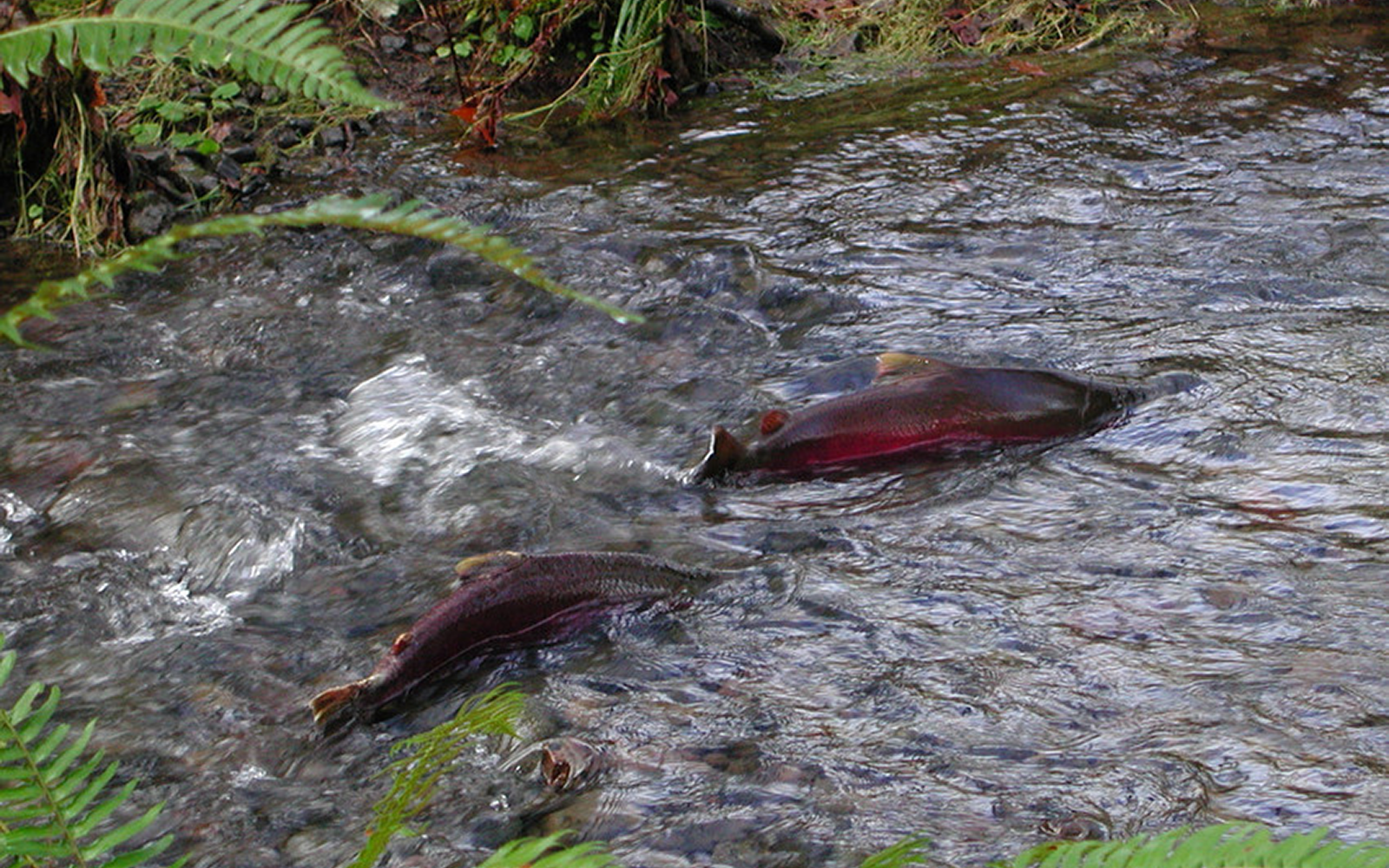
Cascadia is a bioregion defined by the northeastern Pacific Ocean and the associated watersheds. Those watersheds are filled with rivers, creeks and rivulets and many of those waterways were filled with salmon and steelhead. So salmon—in a very real sense—once defined the place we live in and love. If we continue to squander this precious resource and lose our wild salmon, what does that say about us? We feel strongly that we cannot let that happenstance occur and therefore must restore and protect our wild salmon heritage.
Current Challenges and Opportunities
The salmon issue in the Pacific Northwest is complicated. We have five species of native salmon and one species of steelhead trout—all with different life-cycles and a multitude of names and nicknames. Historically, these six species of anadromous fish—i.e., fish that live and grow in saltwater and breed and are born in freshwater—have faced a number of threats ranging from dams and forestry practices to water pollution and misguided fisheries management. While some of these historic threats are being addressed and we are seeing isolated progress, new threats are quickly erasing or threatening that progress including:
- an acceleration of clear cutting
- reduction and violation of riparian reserves
- suction dredging and high banking for gold
- pending pipelines and other energy projects
- hatchery management and release issues
- genetically modified “Frankenfish”
- logging road water quality exemptions
With salmon recovery it is important to differentiate between systematic improvements such as dam removal and operational “Band-Aids” like the return of hatchery salmon. In the Copper River Delta, for instance, natural runs of Chinook salmon are declining while harvests of wild-caught sockeye derived from hatchery fish are robust. It is critical that concern over the former condition not be ignored or down-played because of the success of the latter. We need our wild salmon and we need them to function completely as salmon should. In this vein, our former Alaska field office proposed a Copper River and Bearing River Deltas Wild Salmon Reserve.
Recognizing all of the above, Cascadia Wildlands has launched a set of initiatives designed to save our wild salmon heritage that:
- are informed by science
- identify and emphasize focus areas,
- concentrates on solving root causes rather than applying additional “Band-Aids,”
- are driven by a “big tent” grassroots movement,
- and protect beavers, nature’s “ecosystem engineers”
Join in our efforts!
Sign-up to receive once-monthly campaign updates and alerts.
Become a WildCAT volunteer.
